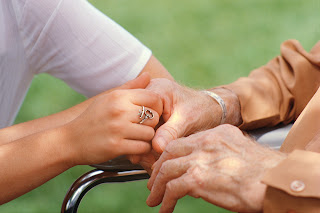
According to a BBC news report, one of the “World’s Largest Pedophile Rings” was uncovered by the UK’s Child Exploitation and Online Protection Centre (CEOP). This pedophile ring existed through a particular internet network where members would share pictures and videos of children who had been, or were at the time, being abused. The investigators from the CEOP infiltrated the internet network by posing as pedophiles in order to gain specific intelligence so they could identify who the suspects and creators of the website were, and identify who the victimized children were as well. The CEOP has termed this investigation as “Operation Rescue”, and the investigation is said to be ground-breaking due to the size of the operation and the way in which so many international law enforcement agencies worked together to accomplish the objective of “safeguarding children, and bringing offenders to justice”. In total, the CEOP has discovered that the “global forum” had 70,000 followers at the peak of its following, and they currently have 670 suspects and 230 children whom they’ve identified. Out of the 670 suspects, 184 of them have been arrested (121 of them from the UK), and 33 of them have actually been convicted at this point. Suspects have included individuals such as boy scout leaders, teachers, police officers, etc. 60 of the child victims have been protected by the UK as well.
The fact that the individuals who have been a part of this type of offense where they feel the need to indulge in images, videos and acts of child abuse and exploitation, at the very least is disturbing.
However disturbing this may be, it’s highly likely that most of the 70,000 people who did participate in this depraved offense have at one point in their lives been hurt by some type of abuse in their childhoods. After reading the book “Hurt People Hurt People” bu Sandra Wilson, this reality became even clearer to me. Growing up, individuals don’t think to themselves, “I really want to become a pedophile who abuses or enjoys the abuse of children.” Usually this reality and desire in a person’s life is reached through a series of painful experiences throughout a person’s life where they themselves were most likely wounded, victimized and abused, and as a result of unhealed wounds, became the “wounders”, victimizers and abusers. According to Wilson, these “hurt people hurt people”.
After reading this article, I was obviously appalled and disgusted at the idea that people would indulge in viewing images and videos of children being abused and exploited. My heart breaks for these children who were being violated and exploited in this way through this pedophile ring. However, it is important to understand why these individuals have hurt others in this way, because it’s obvious that the cycles of abuse continue through generations. Most people are drawn towards helping the victims of these types of crimes and not towards helping and understanding the offenders of this crime. However, when looking at the big picture, this refusal to understand and help offenders of these crimes is counter-productive in the desire to help the victims of these crimes. As difficult as it may be to find compassion or to have a desire to understand these offenders, I believed that both victims and offenders must be understood and helped if one desires to truly help the victims of these crimes. Although I do believe there needs to be understanding and help for both victims and offenders if one desires to truly help those victimized by such crimes, I also believe that no matter how much abuse or pain an individual experiences in their life, there is no excuse for the type of twisted and violating behaviors these individuals participated in. Just because help and understanding needs to be given to the offenders of these crimes does not mean they should be alleviated of the consequences of their actions.























